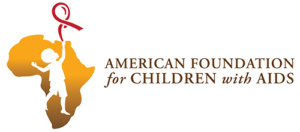One of the worst things about AIDS is that it’s not just a disease. It’s not just a biological phenomenon. It’s a degrading status symbol. Around the world, AIDS is associated with degenerate morality and shame. Once you have it, it becomes an unwanted social marker if you tell and a death sentence if you don’t—and all too often, it is both. The phrase ‘insult to injury’ could never has been more apt. HIV comes with a terrible weight on the victim’s shoulders—not just because knowing that something lethal lives inside you puts an ominous feeling in the pit of your stomach, but because you now have a humiliating social burden to carry as well.
It’s not hard to figure out why HIV and AIDS have a stigma associated with them. When HIV/AIDS first appeared in humans in the mid-1980s, the infected population was primarily composed of marginalized groups—sex workers, intravenous drug users, and homosexuals. In many cultures, each of these groups is associated (some unjustly) with immorality, and this association transferred to the virus. Even in America, upon hearing the world “AIDS,” the listener will often think “homosexual,” “immorality,” or “dirty.” Moreover, the primary mode of transmission is sex—and the more partners you have the greater your chances of contracting HIV. Needless to say, the moral connotation of AIDS is nearly invariably negative. Additionally, in rural areas of developing countries, indigenous beliefs and religions may regard AIDS as the result of sin or spiritual malaise, sharpening the social division HIV can lead to.
The irony is that the marginalized groups among whom AIDS initially spread are now responsible for a small percentage of HIV transmission, at least internationally. In Southern Africa, in countries such as Zimbabwe where we work, HIV/AIDS is a problem that entire societies face. But whether these societies are willing to face it depends on their ability to accept the stigma it carries. Sometimes, entire communities will baldly deny the presence or at least the pervasiveness of HIV. And that denial is deadly, because where available, testing means treatment, and treatment means unnecessary deaths are avoided.
So AIDS means so much more than physical pain. AIDS means ostracism. AIDS means humiliation. AIDS means secrets. AIDS means stigma. And it’s really, really terrible. You’d think at least that kids would escape the social wounds of AIDS, but in many places, they don’t. Even though all children who have HIV were either born with it or had it breastfed to them, that is, no choice of theirs led to their infection, many children with HIV or AIDS face discrimination and neglect because of their condition. Sometimes, HIV+ kids who were also orphaned by AIDS have no caretaker because no one is willing to take on a tainted child. And that is not okay.
The world must begin to see AIDS victims as God’s children, as sisters and brothers whom we are to suffer with, care for, and lift up. They are not tainted, they do not deserve ostracism; they are cherished and deserve love and care. The AFCA strives to provide that love and care, and YOU can be a part of that effort. Visit the main website to learn more.

